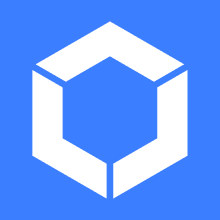
There are 1 Companies in Taiwan
that provide Go development Services!
Despite its relatively small population of 23.11 million citizens, Taiwan continues to strengthen its position as a technological powerhouse. Since the 1980s, Taiwan has taken a proactive approach to the development of emerging technologies. And while this history of manufacturing prowess still accurately defines the island, an economic revolution is underway.
Discover Top IT Companies in Taiwan specialized in Go and other related services. Find the best IT service providers for your projects.
Go, also known as Golang, is an open-source programming language created by Google. It is designed for simplicity, efficiency, and concurrency, making it a versatile choice for building a wide range of applications, from web services to system software.
Handpicked companies • No obligation to hire • 100% risk-free
Explore Top Go development Companies in Taiwan
Expert Magento 2 engineering meets Vision. We build secure, fast storefronts with automated, hyper-realistic product staging.
Filter Go development Companies in Taiwan by Cities
Find the right tech company near you or from a specific city. Some of the best companies might be located in smaller cities.
Find more Go development companies around the world
TechBehemoths is the world's most advanced and user-friendly platform to match IT Companies with real clients without hustle.
The IT Industry in Taiwan: Software Agencies and Companies Information
Despite its relatively small population of 23.11 million citizens in 2025, Taiwan continues to strengthen its position as a technological powerhouse. Since the 1980s, Taiwan has taken a proactive approach to the development of emerging technologies. And while this history of manufacturing prowess still accurately defines the island, an economic revolution is underway.
According to a World Economic Forum report, Taiwan is in the midst of an innovation-driven economy. These findings are unsurprising given its position as a future-thinking hub of technology and engineering.
Hints of this high-tech excellence are prevalent throughout the Taiwanese economy. According to Statista, in 2023, it was ranked first with an average download speed of 153.51 Mbps, but in 2025, it dropped to 17th place. Further reflecting its robust manufacturing industry, the country produces 70 percent of the world's integrated circuits and 90 percent of laptops sold around the globe.
Why Should You Work With a Taiwanese IT Company?
Companies like Microsoft continue to invest heavily in Taiwan’s IoT industry. Taiwan’s ample supply of engineering talents and reasonable wages make it a desirable tech hub. In response to this growth, the government’s Asia Silicon Valley Development Agency (ASVDA) endeavors to raise Taiwan's global market share in IoT from 3.8 percent in 2015 to 4.2 percent by 2020 and 5 percent by 2025.
In addition to that, local companies continue to provide digital services such as software development, digital design, and cybersecurity, among others, especially for foreign companies. Why do international customers choose to work with Taiwanese IT companies?! It’s simple - in the region, is really tough to find better options as price/quality offers.
What to Be Aware of When Working With Taiwanese IT Companies
Taking into consideration that the local IT industry performs above the regional average, Taiwan is a place where IT companies are extremely competitive, and their density is high. Probably higher than you might get used to in the US or Europe. For this reason, a very important and required action for customers is to pay attention to companies’ specifications, which may be the decisive factor for the result of the project.
How Does the Taiwanese IT Industry Relate to the Neighboring Countries?
According to the Organization for Economic Development, Taiwan has a 98.5 percent literacy rate and the fourth-highest standardized math test scores in the world. Further, over 25 percent of all university degrees are in engineering. As a result, many continue to see Taiwan as a desirable hub for further investment.
Compared to the neighboring countries, including China, Japan, and the Philippines, the digits are close when it comes to literacy; however, in terms of the number of engineers, Taiwan surpasses all its neighbors and has one of the highest chances to become the regional tech hub leader, at least in some branches of IT.
What is Go and what are its benefits for your projects?
Go, also known as Golang, is an open-source programming language created by Google. It is designed for simplicity, efficiency, and concurrency, making it a versatile choice for building a wide range of applications, from web services to system software.
More than 363 verified IT companies leverage Go in their development projects. These companies range from startups to tech giants like Google, Uber, and Dropbox. They appreciate Go's speed, reliability, and ease of use for building scalable and performant software.
Go service providers rely on various tools and technologies to enhance their development process. Some commonly used tools include the Go compiler, which transforms Go code into executable binaries, and the Go standard library, which offers essential packages for building applications. In terms of deployment, containerization technologies like Docker are frequently used to package Go applications for consistency and portability.
You may be wondering, how is Go Different from C, Rust, and Java. So, below we’ll try to show you more about the differences that exist between them:
-
Go vs. C: While both Go and C are low-level languages, Go offers modern features like garbage collection and memory safety, which simplify programming. Go is also more concise and expressive than C, making it easier to read and maintain. But if you think your business needs companies that also specialize in C, you can find them on this page
-
Go vs. Rust: Rust emphasizes memory safety and control without sacrificing performance. While Go offers simplicity and readability, Rust provides fine-grained control over memory and is suitable for systems programming with a focus on safety.
-
Go vs. Java: Java is a high-level language often used for building enterprise-level applications. It relies on a virtual machine (JVM) and is known for platform independence. Go, on the other hand, compiles native code, offering better performance and efficiency for certain use cases.
Languages related to Go in terms of use cases and features include Python, Ruby, and Node.js. These languages, like Go, are suitable for building web services and backend applications and are known for their developer-friendly features. If you need these programming languages in addition or instead of Go, just click on their corresponding words above to find verified vendors providing those services.
When selecting IT companies that use Go for your project, consider factors such as the company's experience with Go, their portfolio of past projects, client references, and their understanding of your specific project requirements. Look for companies that align with your project's complexity, scalability needs, and budget.
Go service providers are essential for various project types, including:
-
Web Services: Go is well-suited for building RESTful APIs and microservices due to its excellent performance and simplicity.
-
Networking Applications: Go's concurrency support makes it ideal for developing network-related software such as servers and proxies.
-
Cloud Applications: Go's efficiency and speed are valuable for building cloud-native applications and serverless functions.
-
System Software: Go can be used for developing system utilities, command-line tools, and operating system components.
Go is a versatile language, and its speed, simplicity, and efficient concurrency model make it suitable for a wide range of projects, making it an excellent choice for modern software development.
